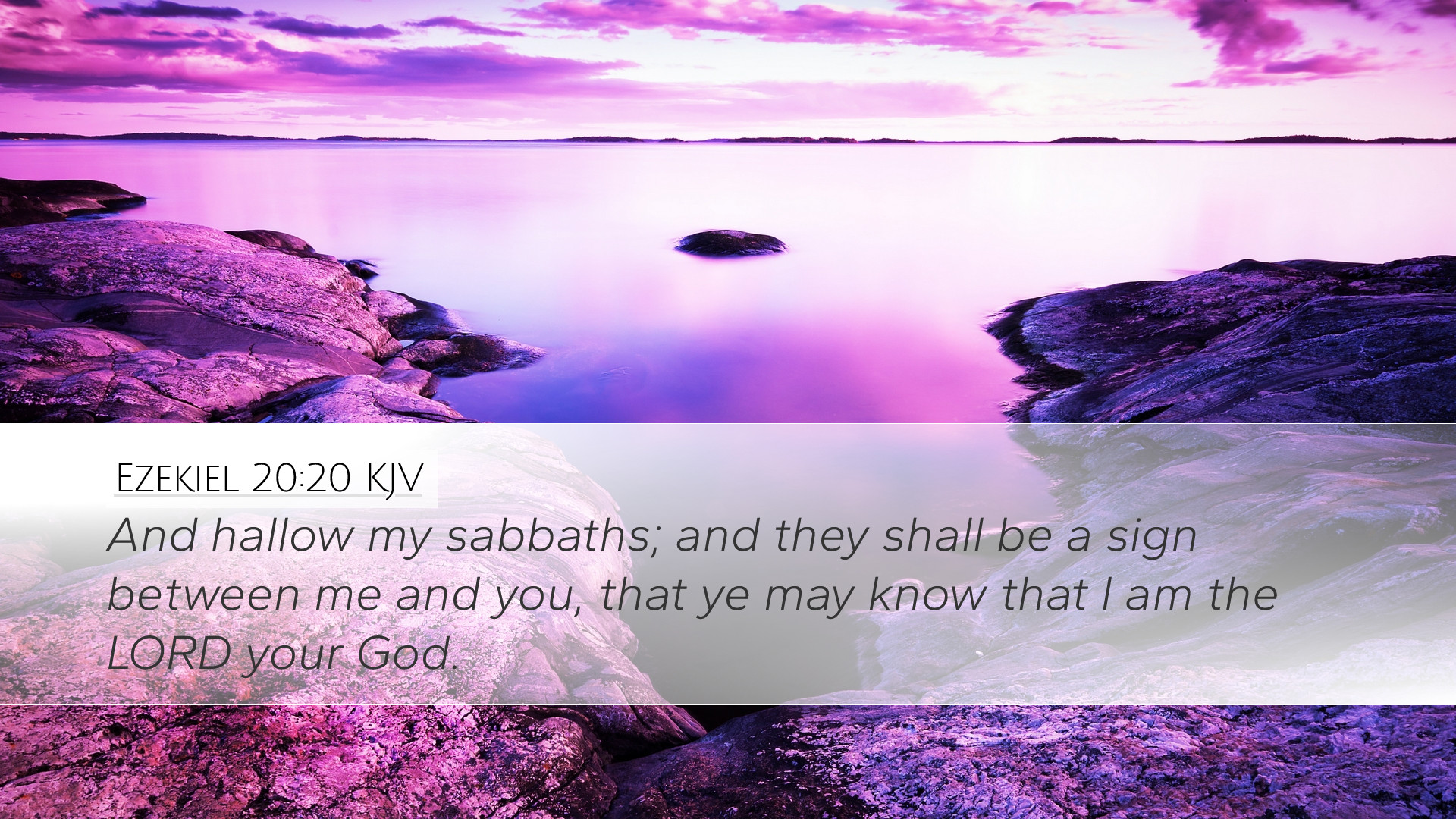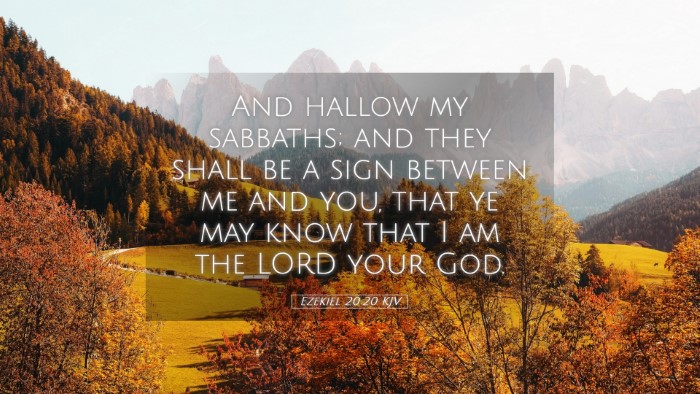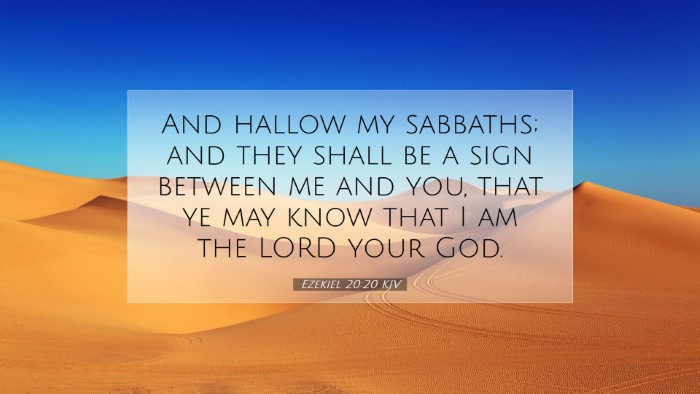Ezekiel 20:20 - Commentary Summary
Bible Verse: "And hallow My Sabbaths; and they shall be a sign between Me and you, that ye may know that I am the LORD your God."
Introduction
Ezekiel 20:20 is a significant verse that emphasizes the importance of the Sabbath as a covenant sign between God and His people. It embodies the themes of holiness, divine authority, and the understanding of God's identity as the Lord. This commentary seeks to explore the theological implications, contextual background, and devotional applications of this verse, drawing insights from notable public domain commentaries.
Theological Significance
The Sabbath was instituted not merely as a day of rest, but as a holy observance that directs the heart and mind of the believer towards God.
- Divine Ownership: The Sabbath recognizes God’s ownership over creation and time. As noted by Matthew Henry, the command to hallow the Sabbath demonstrates that God is establishing authority and calling His people to recognize His lordship.
- Sign of Covenant: Albert Barnes elucidates that the Sabbath acts as a sign between God and Israel, reminding them of their unique relationship with Him. It is a perpetual reminder of divine election and covenant fidelity.
- Recognition of God: The phrase "that ye may know that I am the LORD your God" emphasizes a relational aspect, asserting that the observance of the Sabbath is intended to foster an ongoing relationship and understanding of God's character.
Historical Context
The context of Ezekiel's prophecy is pivotal in understanding the significance of the Sabbath. The Israelites were in exile in Babylon, and they faced a crisis of identity and faith.
- Exile Experience: During exile, the adherence to the Sabbath would serve as a critical spiritual act of resistance against assimilation into Babylonian culture, stressing their distinction as a holy nation.
- Restoration and Hope: This proclamation by Ezekiel not only urges the people to remember the Sabbath but also underscores hope for restoration, highlighting God’s enduring promise despite their current predicament.
Practical Applications
This verse invites contemporary believers to examine their own practices regarding the Sabbath and the significance it holds in their spiritual lives.
- Spiritual Rhythm: Adam Clarke points out that observing the Sabbath allows believers to step back from the chaos of life and regain focus on God. It serves as a spiritual rhythm that rejuvenates faith and commitment.
- Personal Holiness: The call to "hallow" the Sabbath extends into the broader invitation for personal holiness. This verse challenges pastors and students alike to cultivate holiness not only during designated times but throughout their lives.
- Community Identity: The Sabbath is not just a personal observance but a communal identity. Believers today, as in ancient Israel, are called to embody their faith collectively, reinforcing their status as God's people.
In Conclusion
Ezekiel 20:20 serves as a profound reminder of God's enduring covenant with His people. The call to "hallow My Sabbaths" is not merely about observing a day but engaging with God’s holiness and purpose in the world. As believers study this verse, they are encouraged to reflect on how the Sabbath can shape their understanding of God's identity and their relationship with Him.
Reflection Questions
- In what ways can the observance of the Sabbath enrich your spiritual life?
- How do we, as a community, actively engage in the practice of hallowing the Sabbath?
- What modern challenges prevent believers from recognizing God as the Lord in their observance of time?


